
Most parents feel intimidated by the idea of providing a healthy diet to their kids. When it comes to food, parents tend to hear so many facts from other people that they feel confused about what’s right for their child and what’s not. For instance, parents hear things such as kids must not be given high fat foods and that kids must be given fruit juices or that kids get enough fiber these days. However, not all these are ‘facts’ and there are many misconceptions about healthy foods for kids floating around. Let’s see how many you have got correct.
Kids must eat low fat or fat free food to stay healthy
This is purely a myth. In fact, kids below 2 years of age need essential fats for proper brain development and improvement in vision. Fat is considered to be bad for kids, but researchers and several food nutrition experts suggest that kids need more fat than adults, as fats are essential for their growth. In fact, low fat food can actually hamper their development. For kids, fats are important for absorbing various vitamins, providing the feeling of fullness and making their foods taste better. But remember, kids must not eat too much of saturated fat or trans fat that are found in processed foods such as cookies, cakes and snacks. Go for healthy unsaturated fats such as the ones found in some oils.
Kids must be given fruit juices
This myth is partially true. Although, kids must be given some fruit juices, but parents mostly tend to give their kids packaged fruit juices which do more harm than good. Latest scientific research points out that fruit juices available in packaged forms tend to have least amounts of fiber, have more calories and may even contain added sugar that are prime culprits behind making your kids fat. So, if you want to give your child fruit juices, then blend the fruits in a blender and give them fresh fruit juices. Even the products that mention ‘natural’ fruit juices may actually have lots of calories and sugar.
Overweight kids need to go on a diet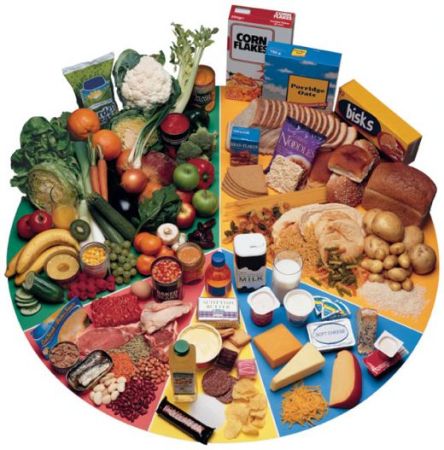
Even if your kid is overweight, dieting is not an option. But at the same time, they must not be fed like teenagers. Overweight kids must be given healthy diets with balanced nutrition. You must reduce their consumption of calorie laden, high saturated fats foods such as biscuits, cakes or processed products. Remember, the American Academy of Pediatrics suggests that children from 2-7 years of age must maintain their weight and that their goal must not be weight loss. Therefore, if you think that your kid is overweight, then you must give him portioned foods and serve him salads, vegetables and soups. Also, you and other family members must also eat healthy foods so that the child doesn’t have cravings and learns from you.
Kids get enough fiber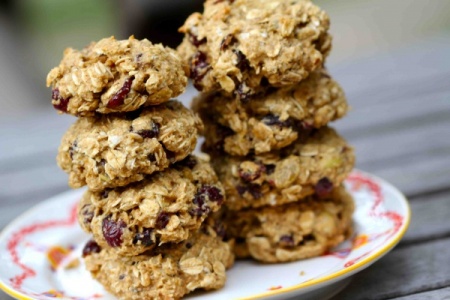
Usually, parents tend to underestimate the importance of fiber in their kid’s diet thinking that kids get enough fiber. But the truth is that kids really get little fiber. Fiber is crucially important for a kid as it slows down the digestion and helps the child to develop regular and healthy bowel movements. So, you must increase the water intake levels of a child along with fiber levels. Fiber can be obtained from foods such as whole grain cereals, whole wheat breads, fresh fruits and vegetables along with dried beans and lentils.
Carbohydrates are not good for kids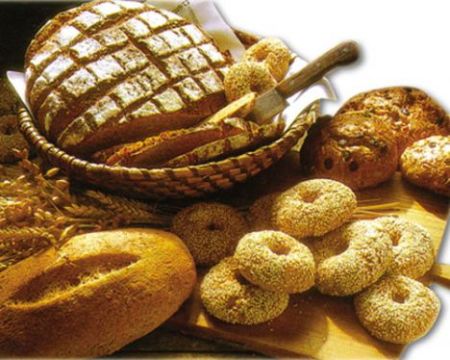
This is another myth. Kids need carbohydrates for their proper development and nutrition needs. Carbohydrates help the child to stay attentive, gives him energy to work during school and play. So, you must include foods that provide complex carbohydrates to your child. This can be provided from whole grain products like wheat that also contains B vitamins as well as iron along with other food products like fruits, vegetables and milk. But processed foods that contain added sugars must be restricted. So, limit the intake of pastries, cookies and other such items.
Kids must be given red meat few times a week for their iron requirements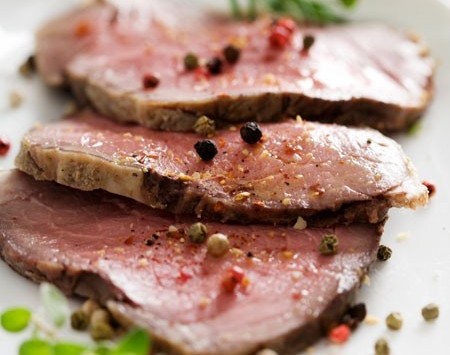
This is partially true. It is true that kids need iron to grow and develop their bodies and brain, but red meat is not the only source of iron for them. Kids can get adequate amounts of iron from foods like eggs, fish and poultry, along with whole grain cereals and dried fruits. So, instead of red meat, you must try these healthier alternatives. Also, make a note that you must not let your kid fill up on milk before eating these food items, as the calcium and phosphorus in milk can reduce the absorption of iron from these foods.
If my kid is not overweight, he/she can eat whatever he/she wants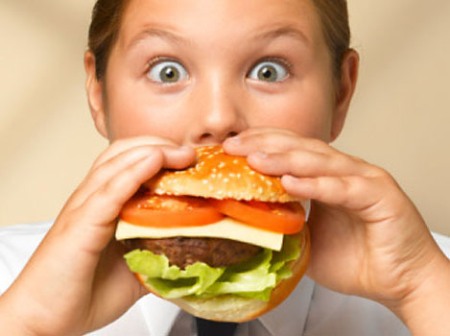
Even if your kid is not overweight, you must choose healthy foods for him each day. Weight is not the only indicator of health. Therefore, you must think best for your kid and provide him/her with a nutritious diet with ample amount of fruits, vegetables, carbohydrates, vitamins and minerals. Remember, a healthy diet is the key to overall healthy growth and development of your child. Poor eating habits will not just result in weight gain, but can also cause several lifestyle related problems.
Instead of sugar, I can use any amount of honey in my child’s food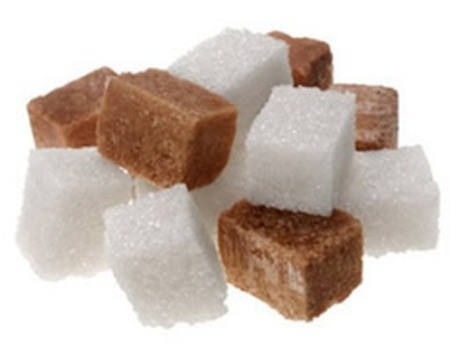
This is also a myth. Chemically, both honey and sugar have the same amount of nutritive value. In fact, honey actually has more calories than sugar. Therefore, you must reduce the overall consumption of sugar by your child rather than supplementing sugar with different amounts of honey. If you want to use honey, than you must use it in small quantities. Remember to give your child enough amounts of everything so that he doesn’t have any nutritional deficiency that may hamper his growth.
Sugar can make kids hyperactive
This is partly true. Several studies indicate that there is no relationship between sugar and hyperactivity. But high amounts of sugar in certain foods can cause an upsurge of energy which might be mistaken as hyperactivity. Also, high amounts of sugars in a child’s diet indicate diet problems which results in hyperactivity. Otherwise, kids tend to be hyperactive due to lack of sleep, inadequate iron consumption, consumption of caffeine, less physical activity, poor diet and excessive use of television of video games. So, supplement your child’s diet with healthy snacks like low fat popcorn or peanut butter.




